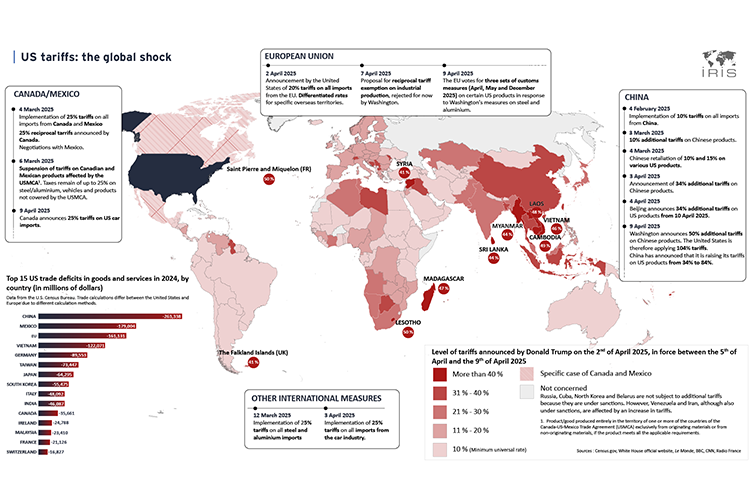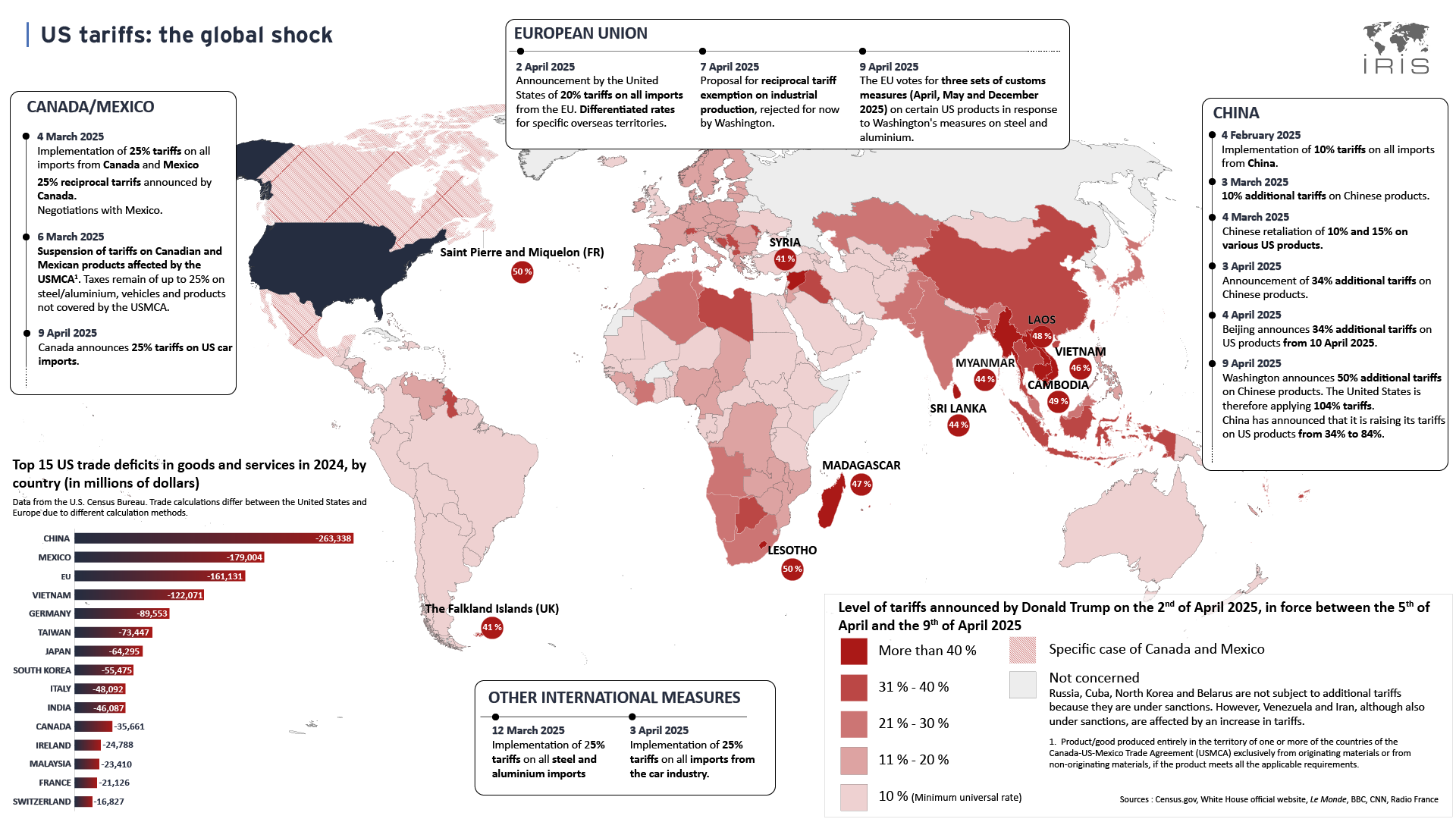Cartographies / Political and Geostrategic Observatory of the United States
9 April 2025
US tariffs: the global shock

On April 2nd, Donald Trump announced the implementation of tariffs against 185 countries and territories, covering almost the entire planet. These announcements – presented by the Trump administration as a legitimate response to trade practices deemed to be unfair to the United States – and their implementation between April 5th and 9th, came as a real economic and financial shock, calling into question the liberal economic principles that had governed international trade until now.
The White House’s methods raise questions. Firstly, in determining the customs duties applied, the calculation method is based on a simplistic interpretation of international trade dominated by the notion of bilateral imbalance. This consists of dividing the bilateral trade deficit by the amount of US imports from the country concerned, then dividing this result by two to obtain the rate of customs duty to be applied. This method of calculation ignores the consequences of such decisions on the financial markets and on American consumers, who are legitimately concerned about a massive increase in inflation.
Applying this method leads to certain aberrations: Lesotho, for example, would be charged a tariff of 50%. There are also some surprising geographical breakdowns: while mainland France is included in the European Union group, its overseas territories are outside the EU, with specific customs duties estimated at 10% and 50%. Is this a mathematical inconsistency, a geographical misunderstanding or a political signal to France?
Finally, the Trump administration claims that the general increase in customs duties could generate up to $600 billion a year in additional revenue, which would be used to finance a reduction in the corporate income tax rate from 21% to 15%, in line with campaign promises. A number of research institutes are questioning these prospects.
This strategy of “tariff reciprocity” is in line with a logic of economic sovereignty, but not without risks for the balance of the international trade system and for global diplomatic stability. Although several countries have stated their willingness to renegotiate these tariffs or have announced countermeasures, the effectiveness of the new tariff policy remains uncertain. However, it is likely that these measures will be used as negotiating tools in other sensitive geopolitical issues, assuming the use of customs duties as a lever for strategic pressure. This policy could lead to a redefinition of alliances, opening the way to retaliation by the targeted powers, especially China and the European Union, which have already responded.





